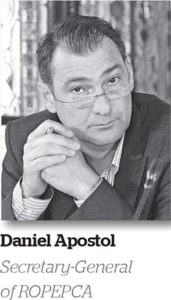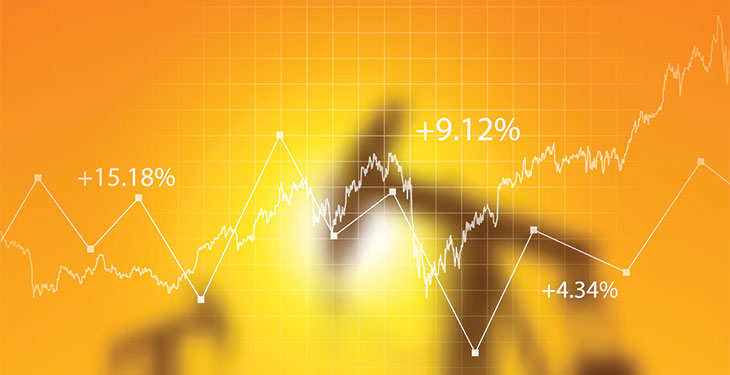Daniel Apostol, Secretary General of ROPEPCA
For some time now, we have witnessed a long dispute within the political environment with regards to the opportunity of a liberalized and competitive energy market (electricity, natural gas) versus the necessity of maintaining a state control over this sector, which would give society more stability and security. Furthermore, this dispute is made worse – such as gas put on fire – by external factors exerting pressure, such as the infringement threat from the European Commission. But beyond Romania’s obligations, assumed as member state of the European Union, I believe that first and foremost, it in the Romanian economy’s interest to succeed in creating a competitive market.

But we are not only referring to the producers interest to operate on an open, competitive market. The greatest interest that the politicians and the authors of the public policies destined for energy should bear in mind, the ultimate interest – as such – is that of the final consumer. The logic of the free, transparent and competitive market is to offer the consumer the best solution, business or price. The consumer is not interested and who, how or why, brings the methane gas molecule into its house, or the flow of electricity; but the consumer is constantly interested in as to have the best energy services arrive in its house: electricity and natural gas at the best possible price. The gas can come either from domestic production or from transactions on the global market, what is important is that it arrives at the final consumer at the best possible price. And this is impossible to do if Romania is not active on an open, dynamic, competitive market. Obviously, that is if Romania of the III millennium does not possibly set its mind to reverse the flow of history, to nationalize production means, close down markets and to “protect” its citizens from “the dying and rotting capitalism”, as was done in the ‘50s, when Stalinism imposed “this freedom”. The liberalization and not a strongly closed up state market gives the final consumer the chance to receive the product and services of the best possible quality and the best price. The open, liberalized market lead in a logical manner to price alignment at regional level, to a synchronization of neighboring trading markets’ pulses such as the principle of the “communicating vessels”, as the energy market analyst Radu Dudau recently stated.
Recently, in the year 2016, he demonstrated the functioning of the “communicating vessels”: the price of methane gas on the regional markets was bellow that of internal production. which, by the simple effect of the commercial exchanges, lead to an increase in import. However, for the first time, Romania did not import because it faced production deficit, but because the large natural gas suppliers who operate in Romania preferred to acquire cheaper gas than that offered by the domestic market, at a price still regulated. It also happened in a favorable international context, that of a lower crude oil price (which takes with it the price of gas).
For honest debates
Today we observe a slight recovery of the crude oil shares on the international markets, which also brings an increase of prices indexed for natural gas. The increase naturally overlaps with the seasonal variation, which is also natural, and I believe there is no more reason to be surprised (and to scare the entire society at the same time) that winter brings along an increase in the gas price. However, it is important that we understand that the liberalization of the market also brings advantages along with healthy economic dynamic, it does not bring only crises, fears and irritation. And the panic induced by politicians with populist speeches must be eliminated by understanding the fact that in a dynamic, open European market, the vulnerable consumers (with low income, those hit by poverty) must be protected, compensated and helped not only through European legislation (the third energy pack), but also through public national policies which would build social solutions mechanisms.
Unfortunately, public debate in Romania is not honest, transparent and with correct arguments placed on the table. Rather we are witnessing exchanges of opinions and duels of harsh replies, often sustained from personal perspectives. It is very important and useful for society that through a honest, bona fide discussion, based on fact, figures and arguments, the advantages of legislative changes be presented, how are Romania’s proposed policies better than what the international markets have experienced and demonstrated as functional and efficient. Then, and not lastly, Romania must take a look in the mirror and decide what presence it takes in the EU, what type of member state it is and most importantly, what kind of economy it is building.
—————————————-
This article firstly appeared in the printed edition of energynomics.ro Magazine, issued in December 2017.
In order to receive this issue of energynomics.ro Magazine, we encourage you to write us at office [at] energynomics.ro to include you in our distribution list. All previous editions are available HERE.
